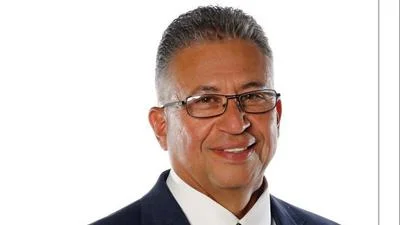Earlier this year, the New Mexico Legislature pushed through a package of 70 new bills, including the "aid-in-dying" bill, which allows physicians to prescribe "life-ending medication" to people suffering from a terminal illness.
While proponents of the bill said the new legislation may "bring peace and peace of mind" to ill people on the brink of death, others see problems with the idea of medically-assisted suicide.
Ethel Maharg, executive director of the New Mexico Right to Life Committee, told the New Mexico Sun that the legislation—which she said uses calculated terms such as "aid-in-dying" and "end of life options" rather than assisted suicide to avoid brash responses—opens up doors to abuse of the elderly and the ill.
"In every place that assisted suicide starts, euthanasia will follow," Maharg said.
The differences between euthanasia and physician-assisted suicide are not black-and-white. Medical News Today, a health information site, said euthanasia is when a doctor is legally allowed to administer painless, life-ending treatments to a consenting patient, whereas physician-assisted suicide, the patient may be allowed to self-administer the treatments under physician supervision.
Further, Medical News Today said that euthanasia may be involuntary or voluntary and can be enacted on familial consent. However, physician-assisted suicide requires consent of a coherent patient who sees no possibility of a functioning, quality life due to their terminal illness.
When signing the bill into law, the Albuquerque Journal reported that Gov. Michelle Lujan Grisham was supportive of the aid-in-dying bill, and described it as "a long overdue change."
"It's really bad," Maharg said of the bill, explaining that family members may push a sick person to choose assisted suicide if they are seeking the inheritance or the estate. "We've heard stories where [families] have exerted a lot of pressure on [ill relatives] to go ahead and end their lives because 'you don't want to be a burden to everyone, do you?'"
Adding to the argument against the "aid-in-dying" legislation, Maharg said a person's life is not up to them to take.
"Life is precious. It's been given to us by God, and we don't have the right to take it," she said. "I just want to encourage people if they're suffering whether physically or emotionally to just hold on a minute. There is help for them. There is medicine for them to feel better."
What is Maharg's message to people whose terminal illness is painful and has taken away any quality of life? The Right to Life Committee Director said those individuals should remember they are not alone.
"There's people that will come alongside you and be with you. If you're suffering, just reach out, there are people that are there to help you," Maharg said.
New Mexico's "aid-in-dying" law contains an opt-out clause for doctors uncomfortable with the ethics of assisting in the death of their patients, as well as a 48-hour waiting period in filling the lethal prescription.
The waiting period may be a window in which patients can change their minds about ending their suffering, which Maharg said, should be treated through medication and not voluntary death.
"I was at the side of both my mother and my mother-in-law [when they died]," Maharg said. "You don't kill people because they're in pain. You come alongside them and help them through it. You walk with them to the very end."
The long-term downsides of a physician-assisted suicide law can be observed in states such as Oregon, Maharg said, where suicide rates have reportedly risen 40% since the legislation was passed there.
The director said that the idea of it being acceptable to "check out and end it all" in the face of pain and terminal suffering is not a good lesson in the impressionable minds of children.
She said she is upset that the law made it through the legislature, and points to the Capitol shutdown that prevented lobbying against the bill, adding that Santa Fe was "in a perfect place" to slip the legislation through.
"It's just strengthened our resolve and given us time to reload," she said.
Maharg encourages any terminally ill patients, family members or anyone interested in learning more about this issue, to visit the Right to Life Committee's website for resources and information about physician-assisted suicide.
"And if [patients] are being pressured, we know lots of good attorneys to help with that," she said.









